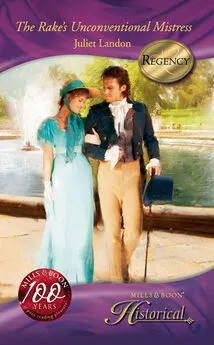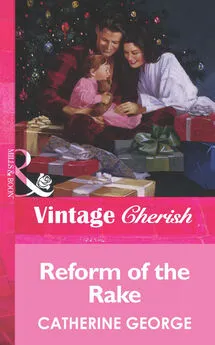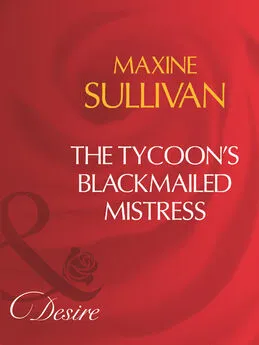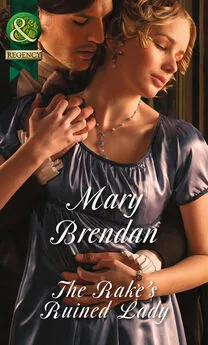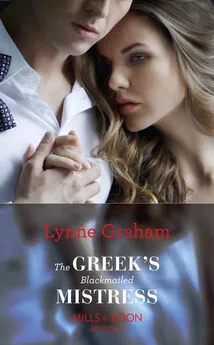Juliet Landon - The Rake's Unconventional Mistress
- Название:The Rake's Unconventional Mistress
- Автор:
- Жанр:
- Издательство:неизвестно
- Год:неизвестен
- ISBN:нет данных
- Рейтинг:
- Избранное:Добавить в избранное
-
Отзывы:
-
Ваша оценка:
Juliet Landon - The Rake's Unconventional Mistress краткое содержание
The Rake's Unconventional Mistress - читать онлайн бесплатно ознакомительный отрывок
Интервал:
Закладка:
It was no mere peck, and when she tried to end it by breaking away, he caught her chin to bring her back to him, stopping her protests with another angry kiss more searching than the first. Even through the thickness of uniform, braids and buttons, she could feel the surge of authority that he felt obliged to impose, left over from the earlier incident and now aggravated by her refusal to yield. His arms were controlling her, determined to humble, demanding submission. It had nothing to do with desire, she was sure, but with obedience, the same obedience she had refused him earlier before crowds of onlookers.
‘No,’ he growled, ‘this is not what I offer your sisters, Miss Boyce. I am not offering anything, but taking your apology. No one is allowed to walk off my parade ground yelling insults at me, not even a woman. Besides, I’ve never taken a kiss from a schoolma’am before. It’s a novelty. Worth repeating, I think.’
‘No… no !’ Letitia snarled. ‘Don’t dare to handle me so. Get off me! I owe you nothing, and that was not an apology. I never apologise to hooligans .’ Her voice, hoarse with rage, spat out the last word as she found a space to bring up her riding crop with a backhander that would have left a mark had he not caught it in time.
Her fury was not only for his contemptuous embrace, but for herself, too, for she ought to have seen it coming, or at least made it more difficult than she had. There was also the painful truth that her first kiss from a man had been taken from her with such ill will rather than for reasons of tenderness and affection that she had always believed were the prerequisites for lovemaking. His intention had quite obviously been to chasten her, making it doubly humiliating.
He held her wrist and riding crop in mid-air, clearly taken aback by the vehement eruption of her fury, his other hand ready to catch her next move. He watched her brilliant flint-stone eyes spark and glisten with rage, her beautiful mouth tremble with shock, and the flippant words he was about to deliver, the laughing retort, did not emerge as he had intended. His eyes grew serious, suddenly contrite. ‘A woman of independence and courage,’ he said, relaxing his grip. ‘Steady now…. I’ve had my say, and I would not wish you to believe your sisters have a hooligan as an escort. Can we not call a truce now?’ He held out a hand. ‘Friends?’
But Letitia whisked away out of his reach as if he’d offered her a viper. ‘After that disgraceful behaviour towards a lady, my lord? If you can believe I need that kind of friendship, you must indeed be more queer in your attic than the rest of your kind,’ she snarled. Lifting her arms, she replaced her hat over her brow, wishing she had worn a veil. ‘Stand aside and allow me to find my way out of this damned place.’
He might have smiled at the strong language, but his mouth formed a soft whistle instead while his eyes took in the neat waist and voluptuous curves, the arch of her back and the proud tilt of her head on the long neck, which yesterday she had kept hidden. He cleared his throat. ‘I know this place like the back of my hand. I will be glad to—’
‘I’m sure you do , my lord. Every little nook and cranny. I can find my own way, I thank you.’
‘What were you trying to find?’ he said, ignoring the innuendo.
She had to give in, or run into yet more problems. ‘The Gold Staff Gallery. Lady Waverley’s apartments.’
‘Number 17. So you know Lady Waverley, do you?’
‘No,’ she said, enigmatically. She swept past him through the door, but a distant shout put further bickering at an end.
‘Lettie! Lettie, where are you?’
Relief swept over her, flooding into her voice. ‘Here!’ she yelled. ‘I’m here… Bart !’ The voice cracked on the last note, giving her away.
Mr Waverley strode round the corner, quickening his stride at the sight of her, reaching out. ‘Lettie, where’ve you been? You here, Rayne?’
‘How d’ye do, Bart. Miss Boyce was lost,’ said Rayne. ‘We were on our way to find your lady mother. Number 17, isn’t it?’
Smiles, indulgent and comforting, warmed Mr Waverley’s face. ‘Little goose,’ he said, tucking her arm through his. ‘You’d get lost in your own backyard, wouldn’t you? Thank’ee, my lord. That was kindly done.’
‘You…you know each other?’ Letitia whispered.
‘As lads,’ said Mr Waverley. ‘Both at Winchester together. Live in the same town, too. I never went in for all this stuff, though.’ He grinned, flipping a hand towards the silver frogging across Rayne’s broad chest.
But despite the sage-green velvet that covered her own breast, Letitia could still feel the imprint of that bulky silver braid, the ache in her arms, and the assault of Lord Rayne’s mouth upon her lips. That was bad enough, but worse still was the pain of his contempt, which she believed was less for her indiscretion on the parade ground than for the fact that she was, as he put it, a ‘schoolma’am’ and therefore less entitled to his respect than her sisters.
Chapter Two
Far from being disturbed by the parade-ground incident, Letitia’s five pupils rode back to Richmond brimming over with excited chatter about the way they had been saved from bolting horses or, at least, being thrown and trampled to death. Their exaggeration served two purposes—first, in masking Letitia’s quietness and, second, in providing Mr Waverley with all the details that she did not particularly want to repeat.
He had not attached any importance to finding Lord Rayne there at the palace, or to the fact that he had been helping Letitia to find her way about. It was, he agreed, a devilish place in which to lose one’s bearings. And it was not Letitia who asked him about Lord Rayne’s exact function as a captain of the 10th Light Dragoons, but Mrs Quayle and Miss Gaddestone, who were still chuckling like girls about the poor coachman’s top hat.
‘He trains cavalry for Marquess Wellington,’ Mr Waverley told them. ‘Not just the 10th Light Dragoons, the Regent’s Own, but other regiments, too. He’s done his share of fighting, but he sold out once and was re-commissioned. There’s no one better than Rayne for preparing young lads for battle. He lives with his brother and sister-in-law up at Sheen Court for some of the time.’
Mrs Quayle of Number 22 knew his brother. ‘That’s Lord Elyot,’ she said to Miss Gaddestone, holding her broken parasol across her knees. ‘Lady Elyot’s a lovely lady. She’s on the Richmond Vestry Committee, in charge of the strays that wander into the town.’
‘Stray dogs?’
‘ Women , dear,’ said Mrs Quayle, pursing her lips, implying a certain condition. ‘Lord Elyot is Assistant Master of Horse, you know. The Royal Stud is there at Hampton Court, so he and his brother work hand in glove with the King’s horses. Breeding,’ she whispered, raising an eyebrow and leaning towards her friend. ‘Horse mad, that family.’ She might as well have said ‘breeding mad’.
Letitia made no contribution to the conversation, nagged by the thought that it was her own untypical defensiveness that had brought about that outrageous scene in the little room, not in defence of her charges, which would have been understandable, but in defence of her own position as their guardian. Had it been anyone else but Lord Rayne who had appeared, she would probably have said very little except to admit their mistake. But at first sight of him, it was as if all the hostility in her being had rushed to the fore, to pay him back for the perceived slight she herself had provoked yesterday. It was all so farcical, when she cared not a whit what the dreadful man thought of her.
Yet she cared very much that she had been shown such shocking disrespect, kissed by one of the most notorious rake-hells in town, not because she was what he wanted, but because he suspected that was what would upset her most, a blue-stocking, worth in his eyes only the novelty value. So much for leaving the protection of her family. So much for independence.
After dinner she pleaded tiredness, leaving her two companions, Mrs Quayle and Miss Gaddestone, to their own company. This was the time she usually reserved for writing her thoughts while she was unlikely to be disturbed.
Tonight, the pen refused to speak for her.
For the best part of an hour she struggled for a way to translate her confusion into words, to describe the physical sensations and to explain her emotions, but this time not even anger would untangle itself sufficiently to make the slightest sense, and eventually she closed the book in weary surrender. Perhaps tomorrow she would be able to see it better from a distance.
That, she told herself, was half the problem, for while she could see perfectly to read and write, to sew and draw, she needed her spectacles to be able to see anything clearly at a distance, and only amongst friends would she have been seen wearing them. If only she’d had the courage to wear them that afternoon, she might have been able to anticipate the trouble before it happened. Locking away her notebook, she reached for her reticule and took out the leather-and silver-banded case that held her plain steel-rimmed eyeglasses.
Coldly, they clamped each side of her face, but instantly each dark recess of the room came to life with detail, the faint rose pattern on the bed-curtains, the reflections on glass and metal, the sharp moulding around the ceiling. The lamp flame was a little miracle.
Her maid, Orla, entered with a tray, smiling at the bespectacled figure that stared about her in wonderment. ‘The day will come, ma’am,’ she said, ‘when every other lady will be wearing those.’
‘In public? Never.’
‘In public, ma’am. You mark my words.’
Letitia was silent. Her father had refused to wear his except in private. Letitia had been with him when he approached the fence and ditch all wrong, and she had never hunted since, knowing that it could have been her. He had died in her arms.
Her inability to put down in words what she had gained by the experience of that disturbing day kept sleep at a distance. Her success as a writer of novels depended to a large extent on her sincere and often vivid accounts of passionate relationships, which, for the most part, were the result of an active imagination combined with brief and surreptitious observations. It was not a satisfactory method for any writer of integrity, even though her first novel to be published, The Infidel , had been a runaway success. The second, recently published, seemed just as likely to please, if her pupils’ eagerness was anything to go by.
Her notebook was her lifeline, a personal record, added to daily, where not only her own thoughts and experiences were logged, but other people’s, too, including those of her pupils, relatives and friends: their mannerisms, figures of speech, and the tales they recounted. Descriptions of places were important, too, which had been one of her reasons for wanting to visit Hampton Court Palace that day. She needed the details, the colours and scale, the sounds and patterns. She had returned with an indigestible muddle of emotions, too contradictory to string together in words.
But therein lay another problem—that of writing about relationships when she had only her own to draw on. If she wished to continue giving her readers the kind of detail they craved, it surely made some sense for her to gain a deeper understanding, a more informed perception of the human heart in all its seasons. Some had dubbed her novel ‘racy’, even ‘scandalous’, because she had followed her characters into places where other writers had not, but as long as she remained anonymous, she was perfectly safe from the disapprobation of those who felt shamed by such personal matters. How could any young woman enter matrimony, she wondered, without knowing the first thing about the state of mind, and body, of the man she would be tied to for the rest of her life? If her own pupils read her books, then so much the better for them. No one would ever suspect her, Lady Boyce’s eccentric daughter, of writing about people in love.
Читать дальшеИнтервал:
Закладка:
